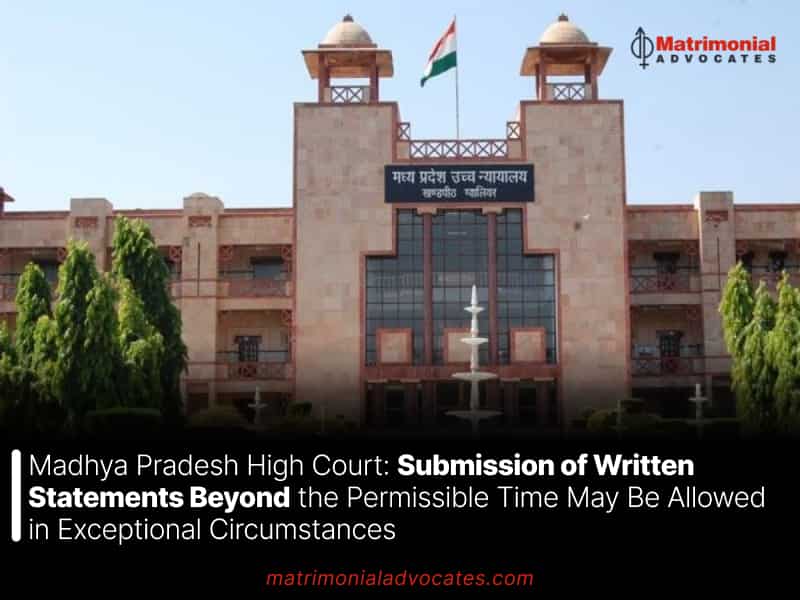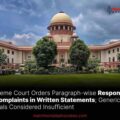
The Madhya Pradesh High Court emphasized that according to Order VIII Rule 1 of the Civil Procedure Code, it retains the discretion to allow the submission of a Written Statement even after the prescribed deadline, provided exceptional circumstances can be substantiated. This pronouncement came in response to a petition contesting the trial Court’s ruling, which had barred the petitioner from submitting a written statement.
Justice Duppala Venkata Ramana underscored, “…the Court retains the prerogative to grant the petitioners or defendants permission to submit a written statement in cases where exceptional circumstances are evident.”
Summary of Events: M/s Sai Baba Collection initiated a lawsuit to recover funds, prompting the trial Court to instruct Canara Bank, the respondent, to inform the petitioners. The petitioners duly appeared, submitted a Vakalatnama, received the requisite documents, and were directed to furnish a written statement. They sought an extension, which was granted by the Court. However, upon the expiration of the extended deadline, the petitioners neither attended nor submitted the statement, leading to the Court deeming their opportunity forfeited.
The Court mentioned the decision in Salem Advocate Bar Assn. v. Union of India and observed, “it has been held that the provisions including the proviso to Order VIII Rule 1 CPC are not mandatory but directory. It has been held in that decision that the delay can be condoned and the Written Statement can be accepted even after the expiry of 90 days from the date of service of summons in exceptionally hard cases. It has also been held in that decision that the use of the word “shall” in Order 8 Rule 1 CPC by itself is not conclusive to determine whether the provision is mandatory or directory. The use of the word “shall” is ordinarily indicative of mandatory nature of the provision but having regard to the decision in that case, the same can be construed as directory.”
The Court emphasized that the defendants were required to submit an application seeking condonation for the delay in filing the Written Statement. However, it clarified that it could not ascertain whether the petitioners had indeed filed such an application for condonation even after the period specified in the proviso to Order 8 Rule 1 CPC had lapsed.
After scrutinizing Order VIII Rule 1 CPC, the Court stated its inability to definitively determine whether the provisions outlined in Order VIII Rule 1 are obligatory in nature.
It was noted by the Court that in this instance, the Written Statement could not be lodged within the stipulated time frame.
The Court observed that the tardiness in filing the Written Statement stemmed from the non-receipt of a complete set of the plaint and other pertinent documents well before the deadline for submission.
In light of these considerations, the Court granted the petition.





